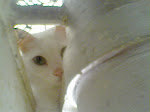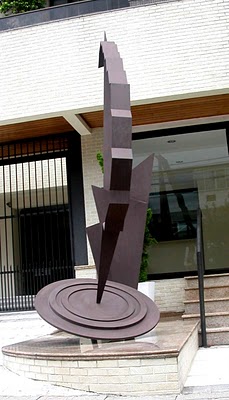 OUR "GUEST FRIEND"
OUR "GUEST FRIEND"by Ronaldo Monte
With the delay of sleep and the absence of internal images, focused my attention on the total darkness that was immersed. I spent the hand in front of the eyes and did not notice any movement. I thought I was close to having an experience of blindness and one end of trouble appeared. But then I remembered what I told me my friend Jane Belarmino, blind and visionary: the fear of the dark is a problem for you. I do not know the darkness. In fact, taking isolated experiences as last night, I do not know the darkness.
And very few people living in cities can be said of the intimate dark. The night, as a synonym of darkness, is an increasingly rare phenomenon. The concern for security and control of people did with the darkness that was banned from the streets and buildings of cities. The evening today is only a period of time very different from the day. When you enter a supermarket or a mall, jumping in a time continuum, where the artificial light eliminates any difference between day and night. The - small dark of the film -is more an expression of caring that real. Besides not being an absolute darkness, the clear light projected on the screen, it can be enjoyed by day or night.
For lack of a clear distinction (or dark) in the day, the night lost its purpose for the period to rest and sleep. Pushed increasingly into the night did the things of day. Pharmacies, supermarkets, gas stations and many other services are open continuously. Varamos the night studying or working. Just going to bed when the exhaust no longer allows us to any activity. Here, then, is the insomnia. And then we realize that we lost contact with our first night. The side that leads us to dream and the pastures repairers that reveals the other side of sleep. The dry eyes, the soul dry, the dryness of the imagination. This is the price we pay at the end of the night. Besides the bad mood the other day.
Ronaldo Monte
Born in Maceio, Brazil. Lives in João Pessoa, Paraíba, 1978. poet, writer, psychoanalyst and professor. Public chronicles in newspapers .
PUBLICATIONS
1983, The corner of the Eyes-book of poems. 1996 - Short Memory, chronic and short texts.-2000 - Weaving Night; poems.- 2003, Small Chaos, chronicles. 2006, -Memory of Fire; romance publisher by Objetiva. In 2007,- The Place of Healing - Construction of the Psychoanalytic Situation-by Editora da Paraíba.




















